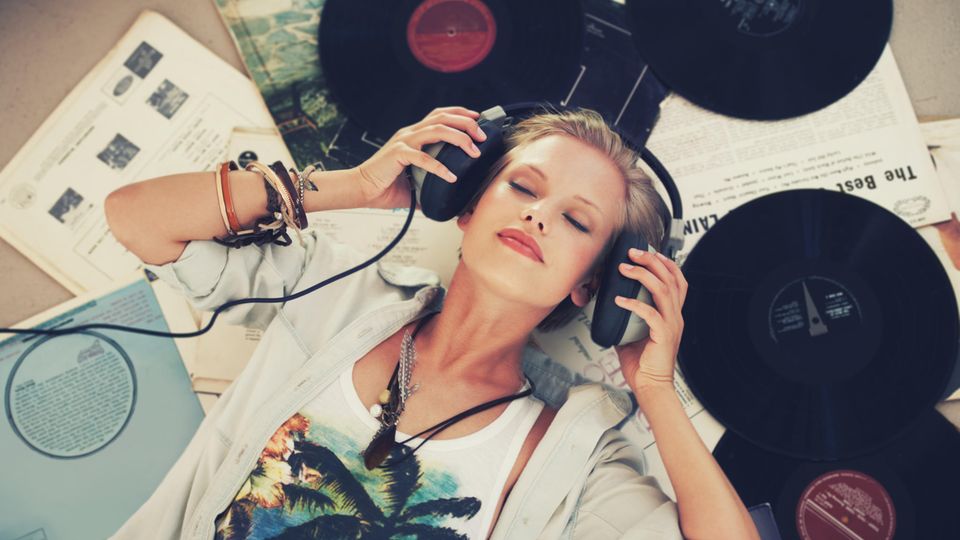While one howls like a castle dog, the other yawns boredly into his popcorn bag in the cinema. Psychologist Paul J. Zak explains why this is.
A cartoon lion mourns the death of another cartoon lion. It couldn’t be more unrealistic. And yet the scene from “The Lion King” in which Simba tries to wake up his dead father Mustafa is one of the saddest in film history. The Walt Disney classic has made millions of people cry and still does. There are these films that are capable of triggering great emotions. They provoke flashes of laughter, cause tears to fall, and cause fear and terror. At least for some people. Others sit silently and feel somehow – nothing. Why is that? Are some simply insensitive wooden blocks or are others built too close to the water?
The US psychologist Paul J. Zak is considered one of the leading minds in the study of emotions. He has been dealing with the neuroscientific backgrounds for 20 years. Dem star he explained how emotional reactions can be so different. He names four reasons that have a significant impact on how we react to films.
Four reasons why people react so differently to films, music, etc
relevance
“When the subject matter is meaningful to the viewer, the brain spends more energy processing the experiences in the film, and this typically results in a stronger emotional response,” says Zak. In neuroscience, this is referred to as “top-down control”. The upper part of the brain (cortex) instructs the lower parts, which primarily process emotions, to devote more processing energy to the experience.
Zak explains this with an example: “Before I had children, children were invisible to me in life and in films. Then when I had my own children and became very emotionally involved with them, a film in which a child has difficulties triggered gets hurt or something similar, causes a strong emotional reaction in me because it is a relevant topic in my life.”
Vicinity
According to psychologist Zak, the environment, the external environment, also plays a role. “People are influenced by the reactions of others and react more emotionally when they see a film with a large audience than when they see it alone,” he explains. So it depends on where you see the film. Cinema halls are designed to be immersive – with big screens and great sound systems. Both increase the emotional reactions compared to watching a film at home, even if you watch it in a group of people.
Personality traits
Zak’s research has shown that people with a very aggressive and empathetic personality react more strongly in any emotional situation. These characteristics are largely genetic, he says. “These people are warm, kind and have lots of friends. They also cry and laugh a lot at films.”
Physical requirements
The ability to regulate one’s emotions is largely a function of the brain’s prefrontal cortex, says Zak. Prefrontal control weakens when one is tired, hungry, angry, frightened, or in other energetically intense internal states that impair our ability to control our emotional responses. “Crying on a plane during a movie is not uncommon due to the stress of the flight, lack of sleep and sometimes lack of food,” he explains.
Young people have less prefrontal control and are therefore more emotional. According to Zak, older people over 60 gradually lose prefrontal control and are therefore also more emotional. In addition, high estrogen levels increase emotional reactions. This happens twice a month during the natural menstrual cycle. Estrogen levels are naturally higher in women than in men.
Immersion: What triggers our emotions
Emotions originate from many places in the brain and activate a large network. Psychologist Zak calls this “immersion.” The core components of this neurological immersion are, on the one hand, the attention to the film and, on the other hand, the emotional resonance that the film generates in the viewer. These two components are linked to the effects of the two neurochemicals dopamine and oxytocin. “They lead to a rapid change in emotional reactions, which manifest themselves as laughing, crying, gurgling and changes in breathing,” says Zak.
This is also the reason why we leave the cinema exhausted but also satisfied when we watch highly emotional films. The immersion triggers an emotional rollercoaster of feelings that is rare in real life. That’s “one reason we watch films that are multisensory compared to reading a novel.”
Silent suffering
Janne becomes depressed during the pandemic. Her father discovers the illness on camera
You can train empathy by watching films
If people are compassionate in real life, there’s a good chance they can experience a rollercoaster of emotions while watching movies, too. And not only that. They also tend to be “happier, have more friends and live longer”. However, how empathetic someone is is largely genetically determined. However, research results from Zak and others indicate that empathy could be “trainable,” meaning that we can learn to empathize.
According to this, research shows that “by peaking immersion responses, we train our brains to be more empathetic in real life.” This is possible through films, but also through books, podcasts and music. Zak therefore concludes that watching more films is not only good for the individual, but also for society as a whole. Finally, empathetic people treat others with more care and concern, which strengthens social bonds.
The US researcher assumes that people also seek these emotional experiences in order to feel more, to live a more profound life and to be more interesting. He says: “I’d rather talk to a soldier crying during a screening of ‘Dunkirk’ than a 20-year-old young man looking for a girl to talk to in the audience.



